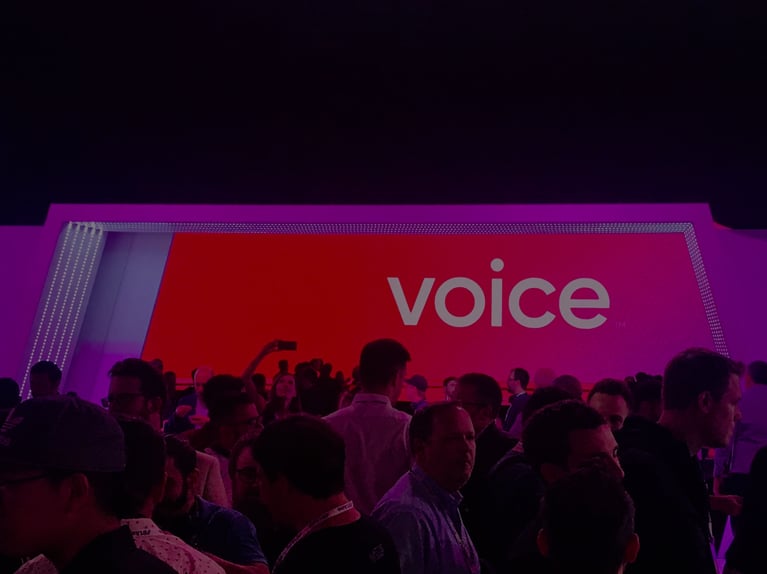Alex Farr
Voice is the new big channel for customer engagement and ranking is everything!

Just as people use voice search differently to web, there are differences brands must consider when optimizing content for voice.
There’s still a lot we don’t know about how voice assistants curate responses, but there are immediate things you can do to give your brand the best chance of being heard by consumers.
CREATE A BRANDED VOICE APP
When mobile phones arrived, brands began creating mobile versions of their websites and launching apps to ensure their content was optimized for those devices. You can’t create a voice version of your website, but you can create a Voice App! Launching an app is the only way to fully control your customer experience on voice.
.jpeg?width=600&name=AdobeStock_266631433%20(1).jpeg)
It’s also worth noting that as people shifted from web to mobile, search engine algorithms changed too.
In 2015, on a day dubbed “Mobilegeddon” by SEO experts, Google started rewarding the search rank of mobile-friendly sites and penalizing sites that weren’t mobile-friendly.
One study found that websites that didn’t switch to mobile-friendly platforms before the update were hit with a 50%+ traffic reduction penalty. When voice overtakes mobile, it’s highly likely that Google will once again change its algorithm to reflect people’s preferred web browsing device. Can you afford to lose half of your website traffic?
BUSINESS LISTINGS ON GOOGLE, BING OR YELP
Recent research revealed that almost 50% of business listings had missing location information or mistakes on their Bing profiles. That’s almost half of all locations not reaching consumers who use Alexa or Cortana.
Location listings are particularly important for businesses that rely on local trade - like restaurants, clothing stores, and pharmacies.
Google reports that “____ near me now” searches have grown by 150% over the last two years. Consumers are using voice search while they are on the move and searching for somewhere to eat, sleep, buy products, services and so on - and if your information is incorrect, they could be walking straight past you.
Accurate and complete business listings across directories also indicate to search engines that your information is reliable and will help you rank better in local voice search queries generally.
WIKIPEDIA
With voice assistants currently so reliant on Wikipedia to source information, it makes sense to ensure your entry is optimized for voice. The average answer on voice is less than 30 words long so make sure the first couple of sentences of your Wikipedia entry accurately reflect your organization.
There have been known instances of voice assistants reading out Wikipedia entries and mentioning brand competitors.
KEYWORDS
Think about how people speak vs. how they type. Because intelligent assistants are able to decipher natural language, we’re using voice search far more conversationally than web search. That means search terms or phrases are becoming longer and are containing more filler words like ‘a’, ‘to’, or ‘the’.
Keep this in mind when you’re writing content and try to keep it conversational rather than based on keywords of 2-3 words in length.
When you’re performing keyword research, consider longer, question-based phrases which include words like ‘how’, ‘what’, and ‘where’. Almost 20% of all voice search queries are triggered by just 25 keywords such as these.
CREATE AN FAQ PAGE

If you don’t already have an FAQ page, now is the time to create one.
FAQ pages are great for voice assistants because they enable you to provide short snippets of information - and voice demands concise answers. They also provide the perfect opportunity to answer question-based phrases.
Research has revealed that voice search results are 1.7x more likely to come from an FAQ page compared to desktop results.
Web search algorithms have long kept us on our toes and we should expect the same from voice. As more people ditch their keyboards and algorithms get smarter, users will increasingly be presented with responses from branded Voice Apps and direct sources rather than third-party sites.
If and when Voicegeddon happens, the brands that aren’t ready for voice search could become invisible to consumers overnight.












